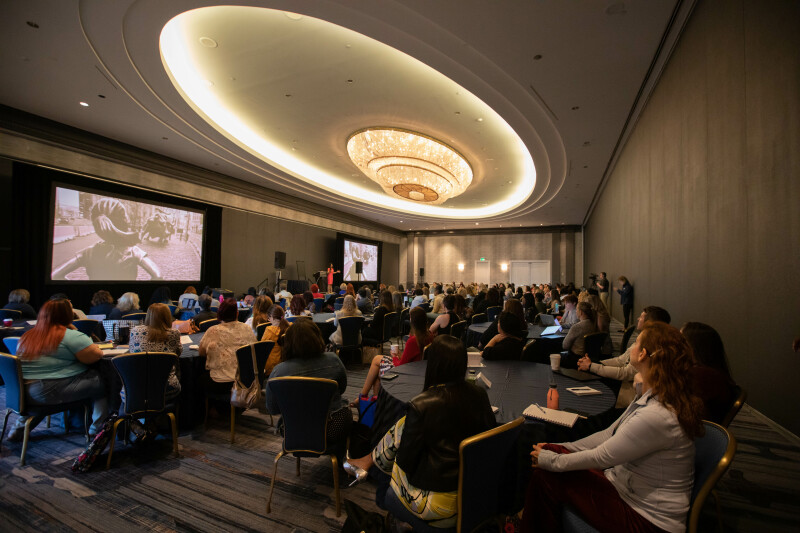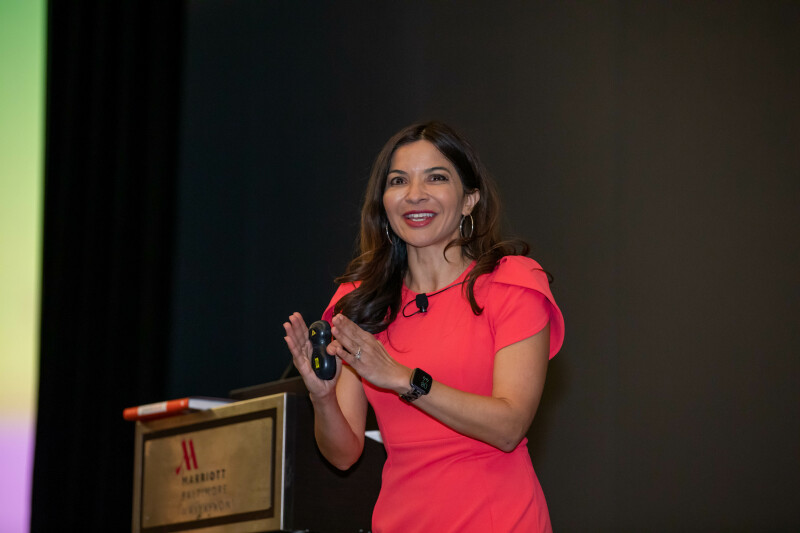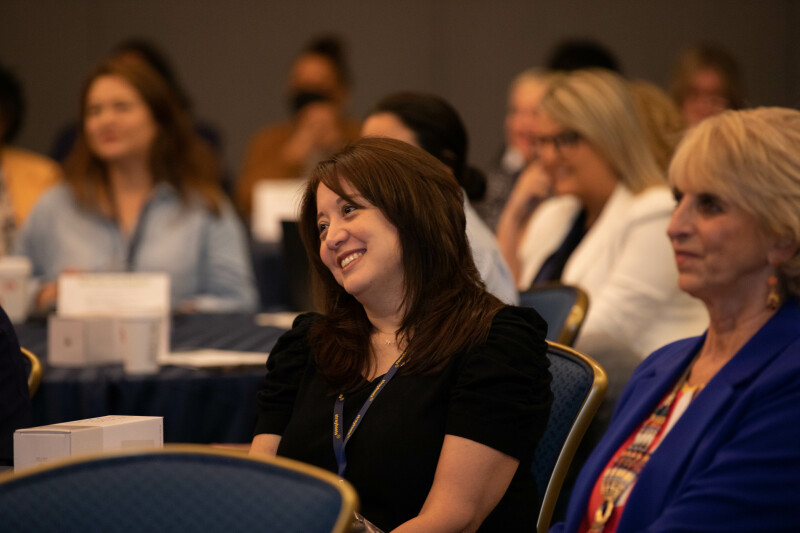“The best return on investment you’ll ever get is from that investment you make in yourself.” – Selena Rezvani
Leadership author and speaker Selena Rezvani began her opening keynote at EA Ignite Spring 2023 in Baltimore, Maryland with a call to action for the executive and senior-level assistants in attendance: You must be your own number one advocate in the workplace, because asking for what you need can change your life.
Whether you are advocating for your own professional development—for the budget and time to attend training events like EA Ignite or obtain a certification like PACE, for example—or for a higher salary, better deal, or promotion, you must have strong negotiation skills.

“As EAs, you are the ultimate negotiators,” Selena said. EAs negotiate every day with their internal customers, i.e., their managers, to come to mutually satisfactory agreements on matters ranging from budgets to vendors to mitigating scope creep. You already have what it takes. However, if the first word that comes to mind when you think of negotiating doesn’t represent the best of you—perhaps it’s “difficult” or “awkward”—change it today.
Five Essential Elements for Becoming a Fierce Self-Advocate
1. Chart Your Options
Come to the negotiation with several possible solutions, not just one. Throw in a sweetener, i.e., something you can provide to smooth the process, in addition to what you’re asking. Remember the Platinum Rule in all negotiations: “Do unto others as they would have done unto them.”
2. Tap Your Network
Selena shared data from LinkedIn noting that 48% of “daily” networkers feel confident about negotiating, versus 33% of “monthly” networkers. You need to have an influential network outside of your organization that supports your career growth, she said.
Benefits of tapping your network to improve your negotiation skills include:
- Being able to hear yourself think out loud when talking to them
- Getting an external opinion that is untainted by the opinions and strictures of your own work environment
- Being able to roleplay a negotiation before it takes place
- Getting further validation to ask for what you need (and to go bigger!)
Another research highlight Selena shared comes from the Harvard University Program on Negotiating. Did you know that:
- Men more often compare themselves to reference groups that earn higher salaries and align with the roles they want
- Women more often compare themselves to individuals they know
Talk to people outside of your close circle, who are not just like you. For example, if you’re a woman of color preparing to negotiate a promotion, talk to a white man in the kind of role you want about how he negotiated. This will help you to know what you should be asking for and be a better advocate for yourself.

3. Style Your Pitch
Selena suggested using “GPS” to style your pitch when negotiating:
- Goals: State the short and long-term objectives that go with your pitch
- Passions: Tie your pitch to the causes your company and the person you’re negotiating with care about
- Struggles: Bring up the obstacles and commitments that may be holding them back, and how your pitch helps to solve them
Incorporating “GPS” in your pitch moves the conversation from “me” to “we.” In other words: “Here’s how we’re both going to gain in some way from this plan.”
4. Embody Success
Serena invited the attendees to stand like Wonder Woman for a moment: legs shoulder-width apart, hands on hips, chest out. How does that feel?
It’s important to know your physical tells: nodding, smiling, eye contact (or lack thereof). Selena recommended practicing neutral body language and a neutral facial expression to signal objectivity while negotiating.
“If you put someone up on a pedestal, don’t be surprised if they start to look down on you.” Don’t be deferential. Instead, think about,”You and me versus the problem.”
“Negotiate with the person, not the power.” It can be intimidating to negotiate with a high-level exec or with multiple people in the room, but remember: They are just people.
“We teach people how to treat us, through what we allow, what we reject, and what we reinforce.” For example, project confidence in your abilities and people will treat you as a confident, capable person.

5. Overcome Resistance
Best Alternative to a Negotiated Agreement (BATNA) is a fancy word for “Plan B.” Communicate what you would do otherwise, i.e., that you are considering other offers. This is better than an ultimatum, because you are signaling your value while still leaving the door open for the negotiation to continue.
Use Strategic Silence
Let’s use an annual review as an example. Your manager asks you to rate your performance from 1 to 100. You give yourself a 115. Your manager responds that they would have given you a 95. Instead of responding to this immediately, wait. Allow silence with a neutral facial expression. Your manager might talk themselves out of it and say, “Actually, I can see why you gave yourself a 115.” The best times to use strategic silence are right after you make your ask and right after the person you’re negotiating with responds to it.
Ask Follow-Up Questions
Selena shared that 94% of negotiators don’t ask follow-up questions. Don’t be one of those people. If someone is resistant to what you’re proposing, push for objective criteria. Ask open-ended questions, such as “What is the rationale behind that?” or “What am I lacking?” Insist on a real reason. You want something you can take action on.
Progress Can’t Wait — Know Your Value
“If you never hear ‘No,’ you’re not asking for enough,” Selena said.
“Good things do not come to those who wait. Good things come to those who ask for and advocate.”
Visit SelenaRezvani.com to learn more about Selena’s work and check out ASAP’s Training Resources to continue growing in your career.



